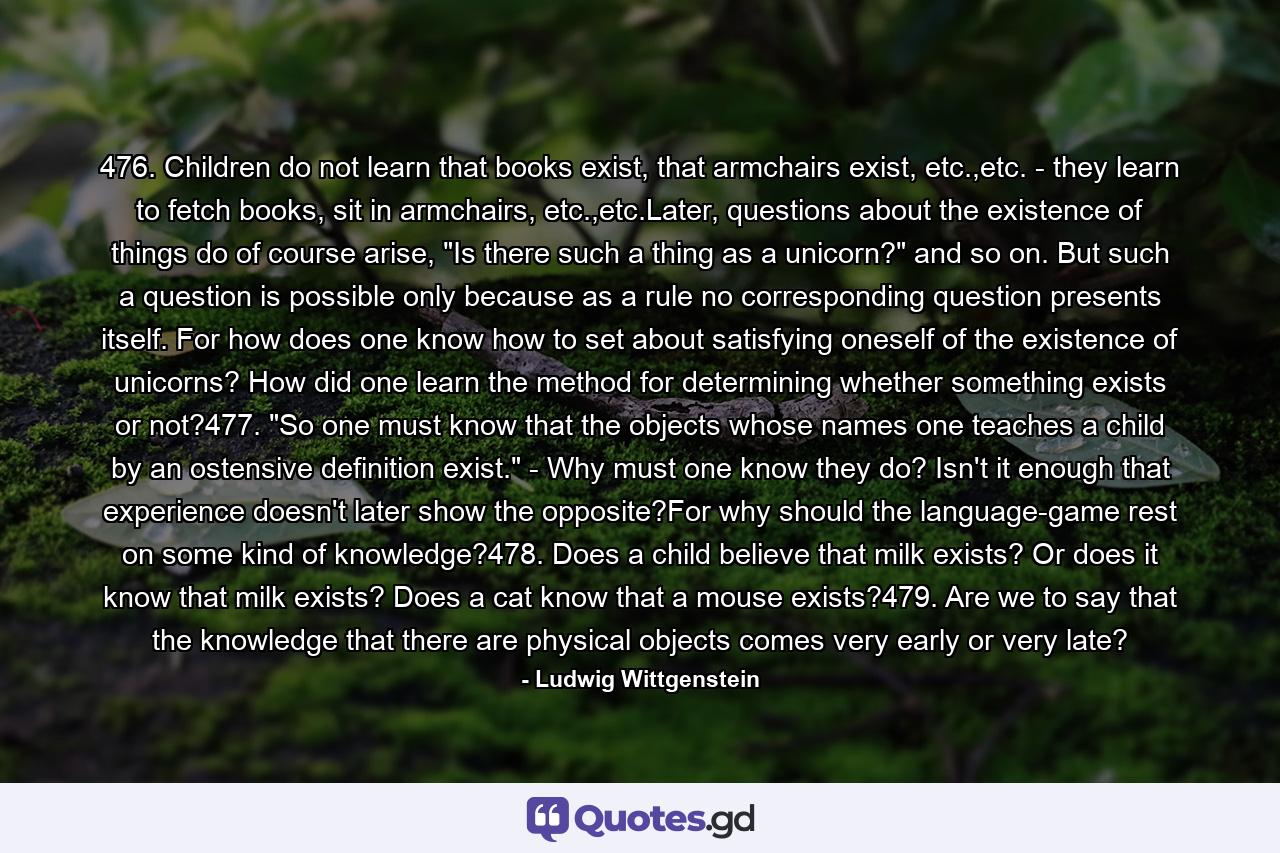476. Children do not learn that books exist, that armchairs exist, etc.,etc. – they learn to fetch books, sit in armchairs, etc.,etc.Later, questions about the existence of things do of course arise, “Is there such a thing as a unicorn?” and so on. But such a question is possible only because as a rule no corresponding question presents itself. For how does one know how to set about satisfying oneself of the existence of unicorns? How did one learn the method for determining whether something exists or not?477. “So one must know that the objects whose names one teaches a child by an ostensive definition exist.” – Why must one know they do? Isn’t it enough that experience doesn’t later show the opposite?For why should the language-game rest on some kind of knowledge?478. Does a child believe that milk exists? Or does it know that milk exists? Does a cat know that a mouse exists?479. Are we to say that the knowledge that there are physical objects comes very early or very late?
